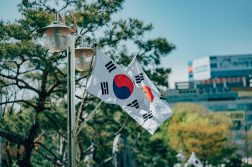President Trump has confirmed he chose not to sanction the Chinese Government further over their detention of Uighur Muslims in the province of Xinjiang, because he was in the “middle of a trade deal”.
The President told the news site Axios that achieving a “great” deal meant he could not impose “additional sanctions” on high profile figures of The Chinese Communist Party for their well-documented internment of over 1 million Uighur Muslims since 2017. Government-led activity which has seen the detention of Muslims who have committed no crimes, faced no trial and are called ‘future criminals’ by the Chinese Government for ‘offences’ which range and are related to individuals beards, veils, internet history and praying routine.
Beijing has continually claimed these camps are ‘schools’ or ‘voluntary training centres’ which have the sole purpose of combating terrorism, political separatism and religious extremism, and are not designed to enforce mass state-sponsored indoctrination or punish innocent people for their traditional religious beliefs. In an attempt to enforce this illusion on the rest of the world, China has sporadically allowed a number of select foreign journalists to visit sections of the camps which have conveniently had their watch towers dismantled and new sporting facilities constructed ready for the cameras arrival. Camp workers have firmly dismissed arguments these camps are prisons, stating luxurious activities such as painting wouldn’t be allowed in such a place. The daily ‘rope-learning’ of slogans and songs which praise the Chinese Government and are often written by President Xi Jingping. The regular threat and enactment of physical and psychological abuse for those who don’t conform to the camps activities, and various accounts of many being detained for simply applying for a passport and having apps such as WhatsApp on their phone demonstrates to all what these camps involve.
John Bolton, President Trump’s ex-national security advisor, has alleged in his new book titled, ‘The room where it all happened’, that Trump told China’s President during a 2019 Summit that the constructions of these camps in the western province of China was “exactly the right thing to do”, an accusation Trump denies. However, when asked why he had not imposed further sanctions on officials of the Chinese Communist Party, for their blatant violation of human rights and persecution of an ethnic group, Trump said: “Well, we were in the middle of a major trade deal. And when you’re in the middle of a negotiation and then all of a sudden you start throwing additional sanctions on – we’ve done a lot. I put tariffs on China, which are far worse than any sanction you can think of”. Since Trump’s election back in 2016 the US has imposed tariffs on more than $360bn on Chinese goods, while China retaliated with tariffs on more than $110bn on US products before a “phase one” deal was signed between the two countries back in January.
When questioned further on why he did not use The Global Magnitsky Act, (legislation passed by Congress in 2016 that allows the Executive to counter state sponsored human rights violations), Trump said “nobody’s mentioned it specifically to me with regard to China”. This quote will infuriate many in The Trump Administration and Congress alike considering back in the autumn of 2018 a rare bipartisan request from Congressional lawmakers, officials from the State Department and The National Security Council agreed the United States should impose sanctions on top Chinese officials and entities involved in these camps, but this was shelved by the President who once again did not want to jeopardise bi-lateral trade talks.
While there is still hope the US could eventually introduce more sanctions against those responsible for these camps considering Congress successfully passed a bill to protect Uighur human rights in May 2020 and Trump signed legislation on June 17th authorising US sanctions against Chinese officials over Xinjiang, it still remains unclear as to whether or not he will utilise this legislation in the future. Especially considering a historical economic treaty with China would give his re-election bid a much needed boost after the President’s handling of Coronavirus and reaction to the Black Lives Matter protests have alienated many who voted for him back in 2016.
In spite of this, it is nevertheless clear the President will continue to denounce China as part of his 2020 campaign. His Administration has previously signalled its desire to punish Beijing for covering up the initial Covid-19 outbreak, denounced it’s new security law for Hong Kong and designated four Chinese media outlets, who currently reside in the US, as foreign diplomatic missions this week. There are also some import restrictions on Chinese companies, visa bars on some Chinese officials and some bans on goods produced under forced labour. This has also been followed up by State Department accusations that the camps play host to routine torture and abuse its residents. A war of words which has been followed by the State and Commerce Department working in unison to impose some sanctions on Chinese officials over Xinjiang, making the continuation of yet another US-Chinese dispute all the more likely for the future.



